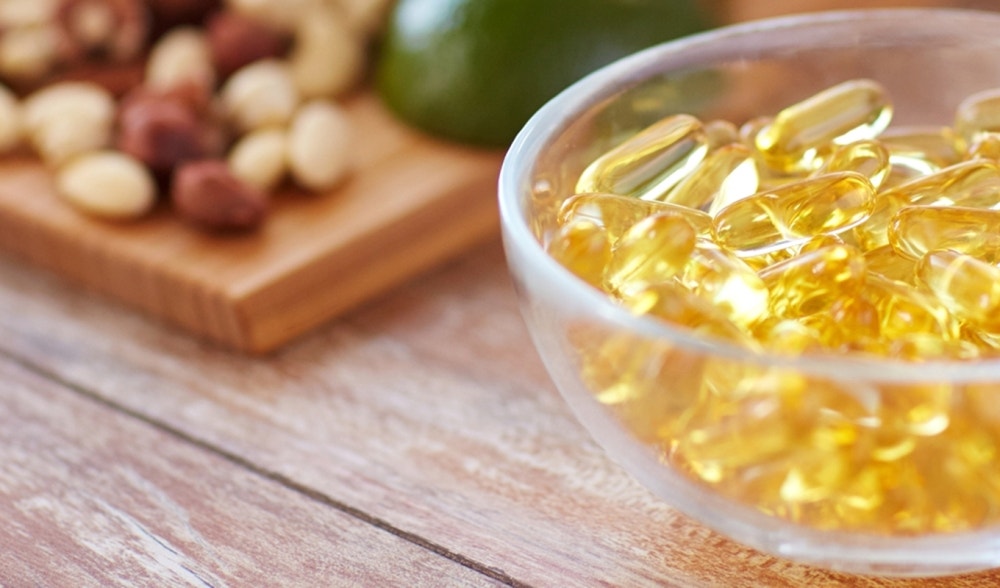The fish that populate the cold seas have always been the elitist source for the polyunsaturated fatty acids of the omega 3 series. However, in the animal kingdom, there is an additional category from which it is possible to obtain these precious and indispensable elements: krill. Let’s discover the characteristics together!
Krill: what it is and what it has
Krill represents a set of small crustaceans belonging to the order Euphausiacea that concur in forming the zooplankton. Widespread in all world waters, krill has higher densities in cold environments, primarily polar waters. To give you an idea of the vast heterogeneity of these organisms, think of them as the largest biomass on the planet!
Krill finds its position at the base of the marine food chain, second only to the phytoplankton (basic algae), which these small crustaceans nourish. In turn, they are the main nutrient source for many species, including cetaceans, fish and some birds.

Krill Oil
Krill, admittedly, is an unusual food in human nutrition. From it, however, it is possible to obtain an oil rich in properties:
- We first find a high content of eicosapentaenoic acid (EPA - 20:5 n-3) and docosahexaenoic acid (DHA - 20:6 n-3), produced by phytoplankton and stored in krill once it is fed. In contrast to the counterpart derived from fish, the two acids are mostly associated with phospholipids, which increases their bioavailability and transport to cells.
- There are antioxidants such as vitamin A and tocopherols, whose task is to stabilize the delicate omega 3 protecting them from oxidative phenomena, ensuring their properties and therefore their effectiveness once taken.
- It contains high amounts of astaxanthin, the most potent antioxidant in nature, which gives the characteristic red colour to the product. It also (and probably to a greater extent) participates in the protection of omega 3 from degradation.
- Provides good amounts of phosphatidylcholine, one of the main constituents of cell membranes, involved in the proper transmission of nerve impulses and source of choline, necessary for numerous metabolic processes, including lipid metabolism.
Krill Oil vs Fish Oil
We have always stressed the importance of taking products with quality certifications, especially as in the case of omega 3, whose role for health is widely recognized.
What distinguishes krill oil from well-established fish oil?
In fish oils, the main problem arises from the unavoidable accumulation of heavy metals and other xenobiotic substances that large animals that are used for production face. The meat of these fishes, and in particular the adipose tissue, in fact, represent real warehouses, which renders more complicated and expensive the processes necessary for the extraction and purification of the final product. As a result, the criteria for ensuring a product free of contaminants are quite stringent, and not all companies can meet the required requirements. One of the safety guarantees for fish products is the IFOS certification, which we invite you to check when purchasing omega3 supplements.
Krill, on the contrary, given its nature, size and reduced life cycle, is mostly extraneous to pollution, with relatively low levels of harmful substances, configuring itself as a "clean" source.
Benefits
Taking krill oil brings benefits attributable to the introduction of EPA and DHA, known and widely supported from a scientific point of view, including better glycemic management, lipid profile optimization or improved neuronal plasticity. Some studies have shown interesting results on cardiovascular risk factors, improving the LDL/HDL ratio and blood TG levels. A further plus could come from the specific composition of krill oil, in which the antioxidants (astaxanthin fist of all), in concert with the polyunsaturated fatty acids, could reduce the markers of some pathologies of inflammatory nature.
It should be specified, however, that a properly studied diet, rich in polyphenols and other antioxidant compounds would ensure the same effect.
Contraindications
As it is a product based on omega 3 it is necessary to pay particular attention in the use, especially in the presence of hypotensive phenomena, hypoglycemic or if pharmacological treatments based on anticoagulants are in place. In addition, in case of allergies to crustaceans, it is good to refrain from consumption.
BIBLIOGRAPHY
Tou JC, Jaczynski J, Chen YC. Krill for human consumption: nutritional value and potential health benefits. Nutr Rev. 2007 Feb;65(2):63-77. doi: 10.1111/j.1753-4887.2007.tb00283.x. PMID: 17345959.
Xie D, Gong M, Wei W, Jin J, Wang X, Wang X, Jin Q. Antarctic Krill (Euphausia superba) Oil: A Comprehensive Review of Chemical Composition, Extraction Technologies, Health Benefits, and Current Applications. Compr Rev Food Sci Food Saf. 2019 Mar;18(2):514-534. doi: 10.1111/1541-4337.12427. Epub 2019 Feb 12. PMID: 33336946.
Kwantes JM, Grundmann O. A brief review of krill oil history, research, and the commercial market. J Diet Suppl. 2015 Mar;12(1):23-35. doi: 10.3109/19390211.2014.902000. Epub 2014 Apr 1. PMID: 24689485.
Kim MG, Yang I, Lee HS, Lee JY, Kim K. Lipid-modifying effects of krill oil vs fish oil: a network meta-analysis. Nutr Rev. 2020 Sep 1;78(9):699-708. doi: 10.1093/nutrit/nuz102. PMID: 32073633.
Ursoniu S, Sahebkar A, Serban MC, Antal D, Mikhailidis DP, Cicero A, Athyros V, Rizzo M, Rysz J, Banach M; Lipid and Blood Pressure Meta-analysis Collaboration Group. Lipid-modifying effects of krill oil in humans: systematic review and meta-analysis of randomized controlled trials. Nutr Rev. 2017 May 1;75(5):361-373. doi: 10.1093/nutrit/nuw063. PMID: 28371906.
Berge K, Musa-Veloso K, Harwood M, Hoem N, Burri L. Krill oil supplementation lowers serum triglycerides without increasing low-density lipoprotein cholesterol in adults with borderline high or high triglyceride levels. Nutr Res. 2014 Feb;34(2):126-33. doi: 10.1016/j.nutres.2013.12.003. Epub 2013 Dec 18. PMID: 24461313.


Comments
Write a comment about the article